Grease - What a Performance!
From the Director of Grease
Louise Chapman
English Teacher / EPQ Coordinator
As Shakespeare famously wrote in As You Like It “all the world’s a stage” and this is certainly resonant of the role of drama at Wellington College Tianjin. Drama forms a central role in classroom activities such as role-play, debating and performance, as well as being a key feature of the ASA programme and, most recently, the dazzling school edition of the musical Grease. In this year’s musical, pupils were required to embody the role of American teenagers from the 1950s, grappling with issues of love, friendship and the struggles of ‘fitting in’. Throughout the rehearsal process, all principal and ensemble cast were required to overcome numerous challenges, such as self-confidence, language learning and characterisation in order to produce the final show.
Other than having the satisfaction of partaking in an exciting production, the cast also benefited from having exposure to the challenges of drama and improving their academic, social and developmental skills. For second-language learners, the benefits of drama for language learning coincides with Vygotsky’s theory of language acquisition (1978) in which he argues that we learn through talk: building our language ability through interaction via our “zone of proximal development” (Vygotsky as cited in Britton, 1987, p.25). Not only does drama provide ample opportunity for ‘talk’, it also opens a range of possible worlds, otherwise potentially unknown or inaccessible to pupils. McCallum (2012) coins this by using the term ‘re-creativity’ which “refers to the self-conscious manipulation of source material to bring something new into being” (p.54). Through rehearsing and performing a play-text, pupils are actively reading, analysing and interpreting roles in order to transform the words of the script into a believable character. There is an obvious link here to both reading and oracy, as Chambers (1991) notes “our taste for reading literature is deeply rooted in this oral experience of story” (p.45) and that “different readings aloud of the same text show what readers do is interpret” (ibid). The act of interpreting is an essential skill in not only English classrooms, but across all subjects in which pupils are required to engage with written or spoken language.
At Wellington College Tianjin, we employ an oracy framework in order to assess and monitor pupils’ progress with oracy skills:
The deliberate application of thought to what you're saying
Knowing which words and phrases to use, and using them
Making yourself heard, using your voice and body as an instrument
Engaging with the people around you; knowing you have the right to speak
It is apparent that pupils involved in the musical were evidencing and refining these skills throughout the rehearsal and performance process. Interestingly, the actors in the musical were also required to sing and create a performance through singing, a link which Kempe and Holroyd present through stating that the human voice is analogous to an “instrument” in its ability to “manipulate physical processes in subtle ways” (2004, p.53). The hard-work and resilience demonstrated by the pupils in achieving these subtleties of character (alongside singing and dancing) was an incredibly rewarding challenge and they should all be proud of what they have achieved.
From the Producer of Grease
Shih-shih Chen
Director of Music
Before I took up the Director of Music role, I already knew that Wellington College Tianjin had a long tradition of producing high-quality musicals. This year, as the school musical season approached, I had in mind that we were going to work on a production that would meet the high expectations but at the same time offer a production which would entertain the entire community, performers and audience alike. For this very reason, "Grease" came to mind. The show has been a classic since its launch in the 1970s, and it is no exaggeration to claim that most members of our international community grew up listening to this very recognisable soundtrack. Furthermore, the show features such contemporary social issues as peer pressure and gang mentality. Its themes include love, friendship, and teenage rebellion, topics to which most young actors can easily relate.
From the earliest stages of the show's preparation, I was determined to assemble a team that shared the same values. I wanted to make sure that all the team members respected each other's expertise and viewed this project as a true collaboration. I first met Louise Chapman, my co-director, in the Black Box. She had invited new colleagues to observe her demonstration of the Royal Shakespeare Company's whoosh technique in her English class. I was impressed by her passion and how she integrated fun into her classroom teaching. I immediately knew she was the one I wanted to co-direct the show.
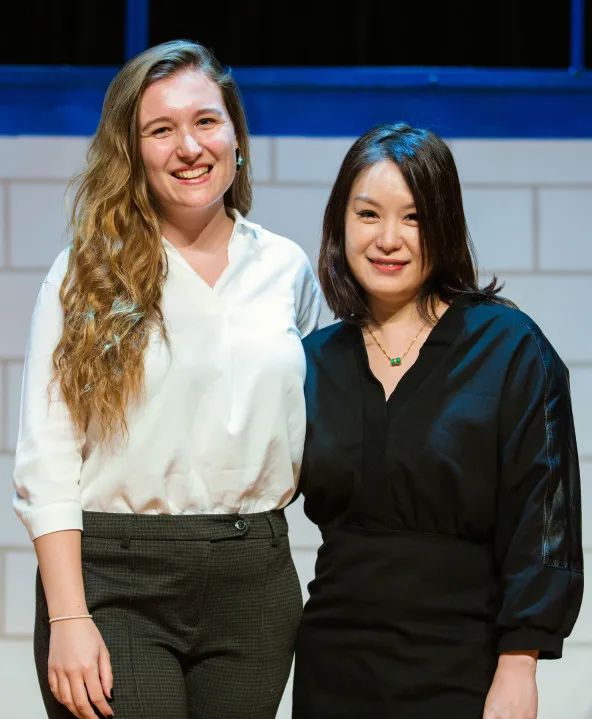
In this team, all the members contributed their best. The set designer and props master worked miracles, and choreographers Sophia Shen and Luyi Feng came up with the dance moves which the cast enjoyed learning.
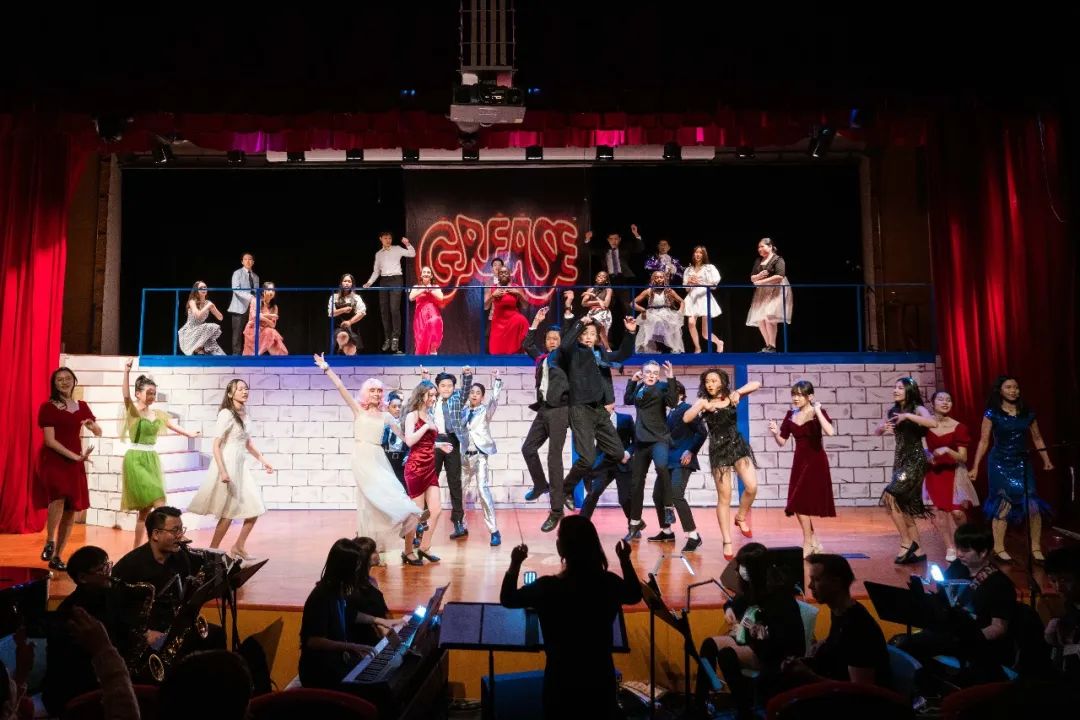
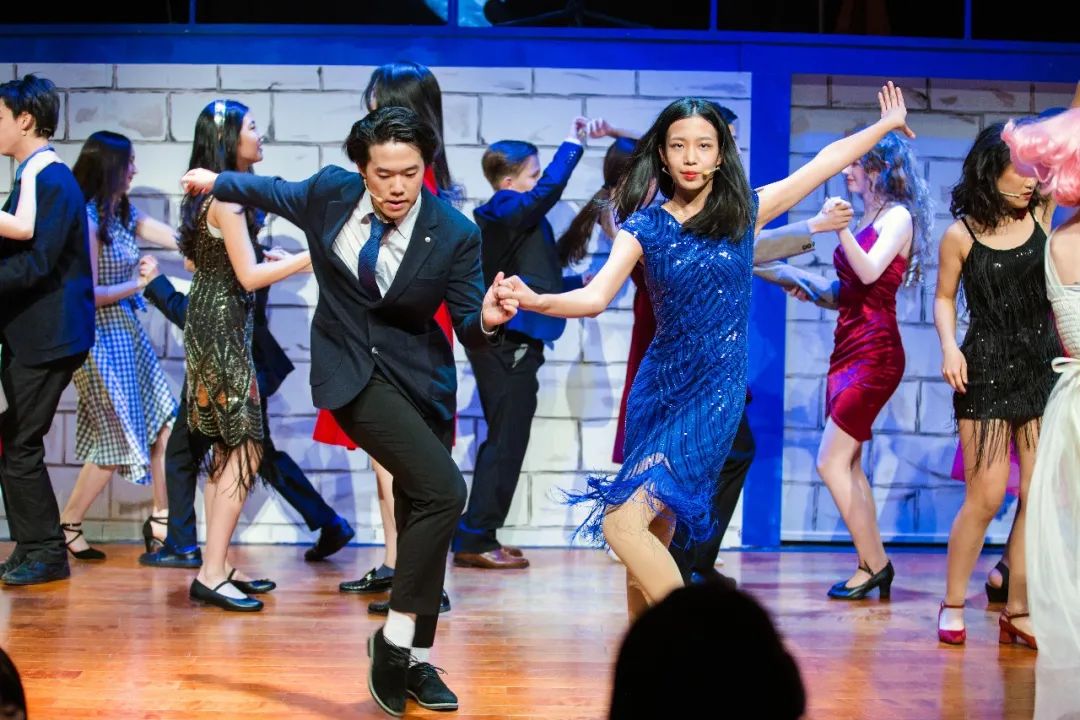


Prop designers Emma Qi and Ian Wood helped pupils to make props that were so memorable that some were taken home as souvenirs by the pupils who made them.
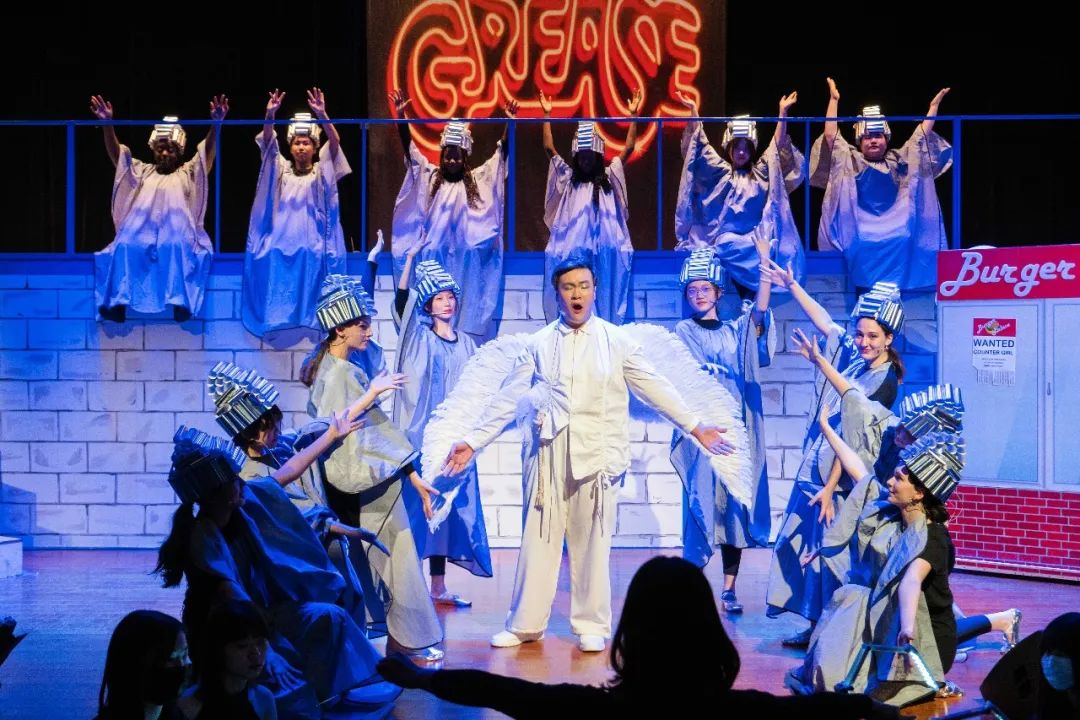

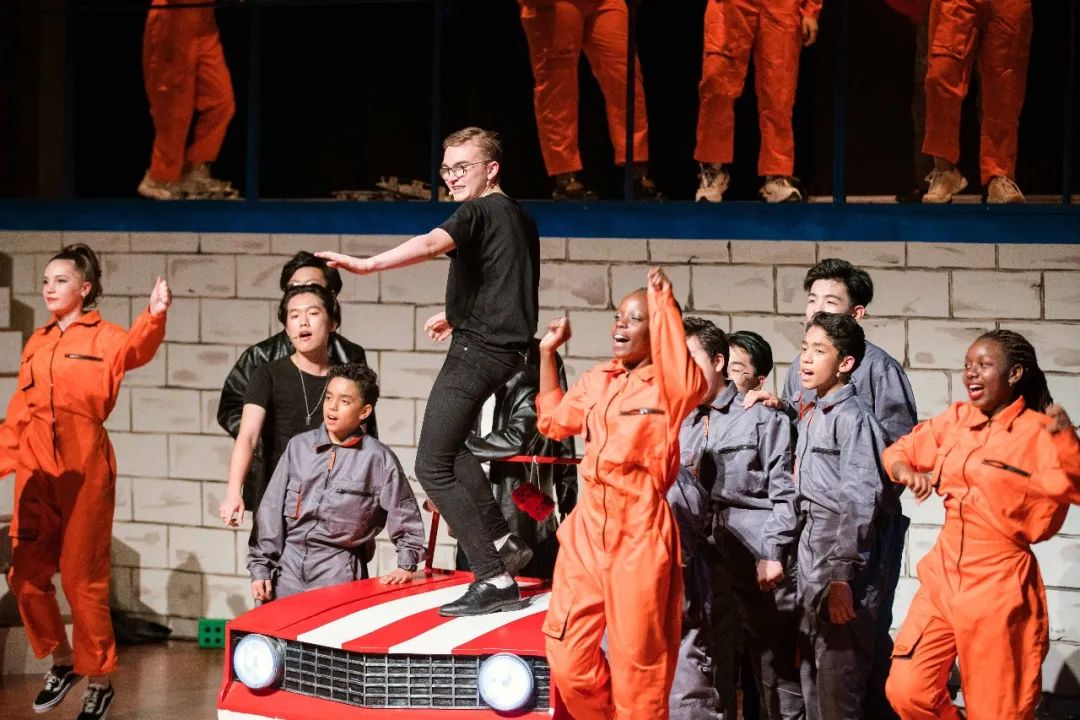
The costume designers - Ksenija Markovic and Nichola Iddison - added visual authenticity with designs that celebrated the 'greaser' culture and aesthetic.
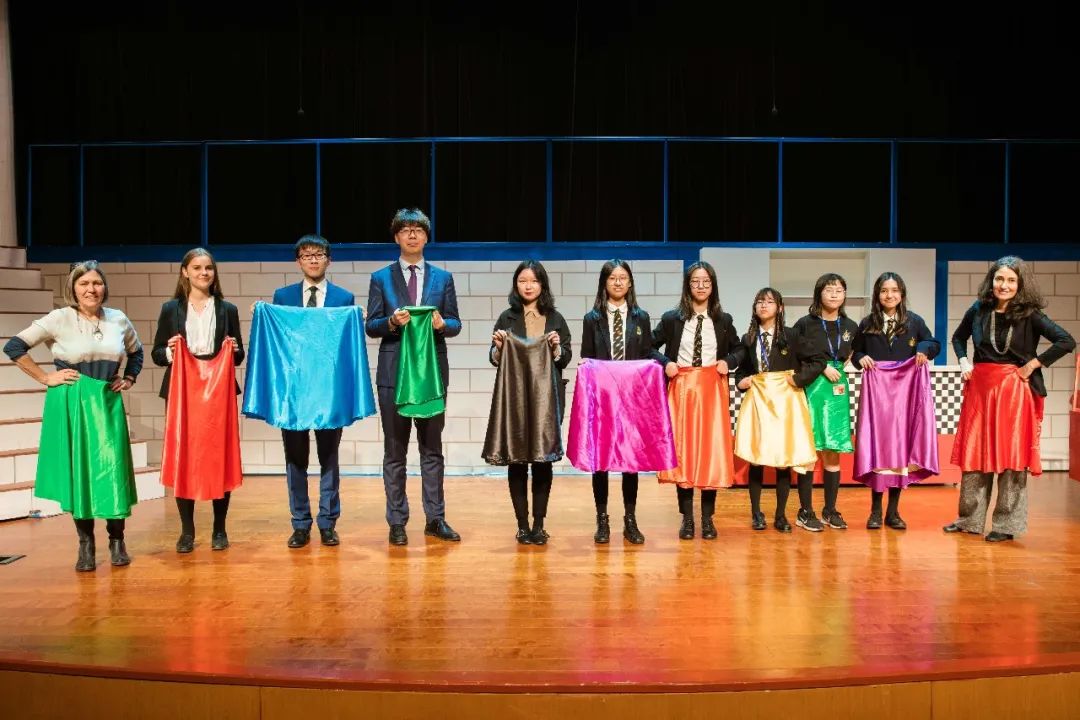


My colleagues in the music department also played hugely significant roles, with Stella Sun as co-producer, making sure everything ran smoothly and Emma Chen rising to a PA's challenge.
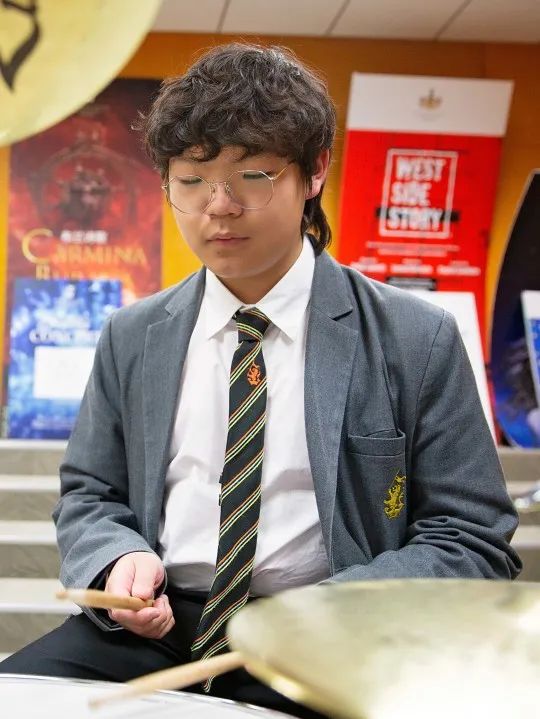
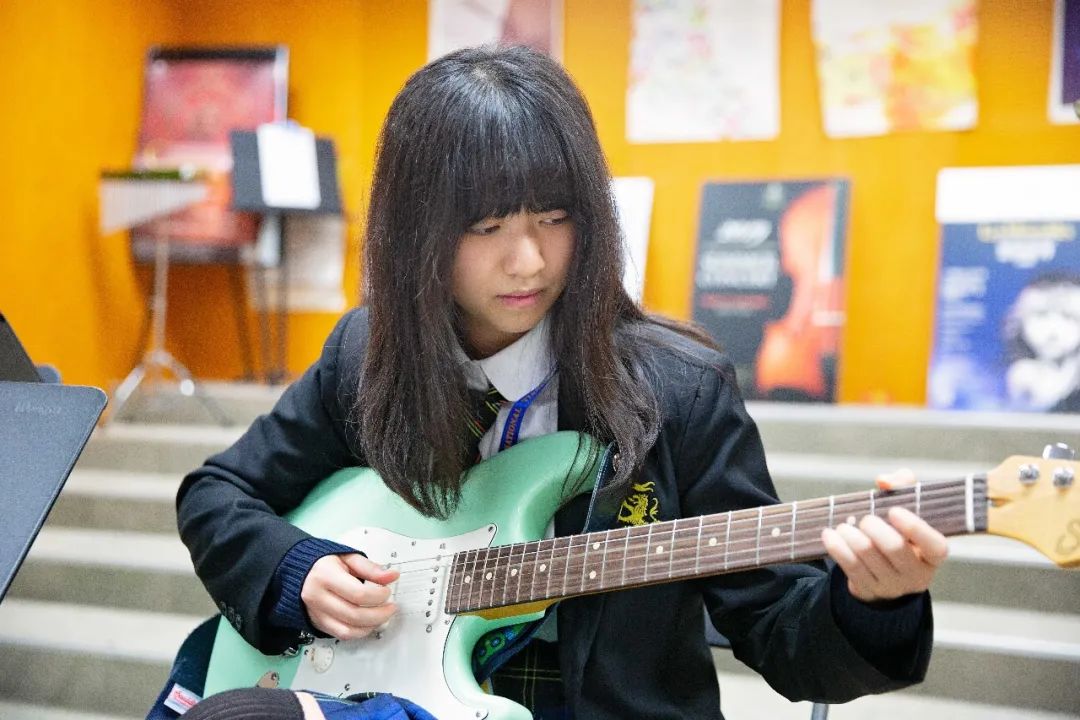

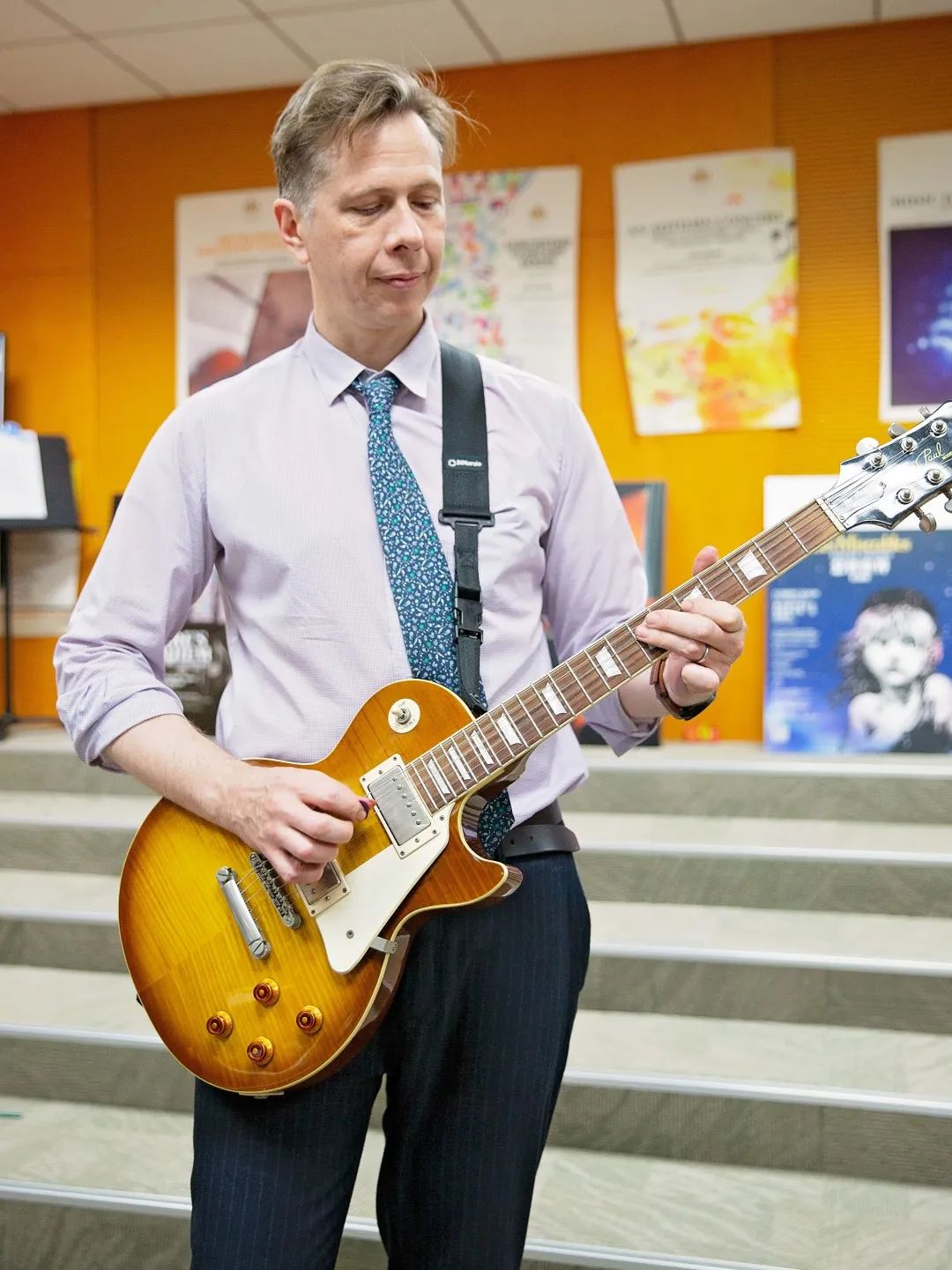
Without them, the show could never have been a success. Most importantly, we all had the pupils' best interests at heart, minimising the disruption to the pupils' learning and ensuring that they had fun while learning their parts.

From the first audition until the last performance, the cast faced several challenges, such as heavily choreographed dance scenes, high vocal ranges for boys experiencing their own voices changing, feverish set and costume changes, and complex harmonies which comprised up to six parts at times. This year we had younger cast members than in our previous school productions, and very few of them had the experience of taking on a lead role. On top of that, the pit band's pupil musicians had to master more than twenty numbers to provide a solid foundation for the actors, singers, and dancers to perform.
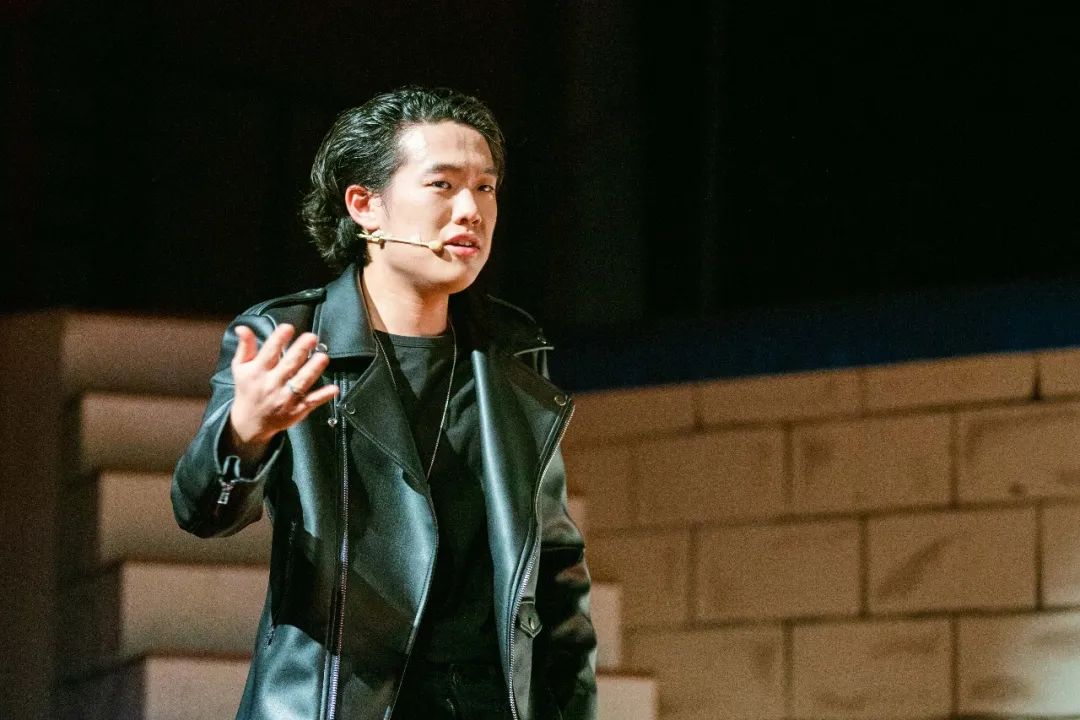

However, the teachers in the production team were amazed by the determination and perseverance shown by the cast and crew. It was a joy to see how these pupils grew in the process and how they always wore a smile while working hard to achieve the best result.




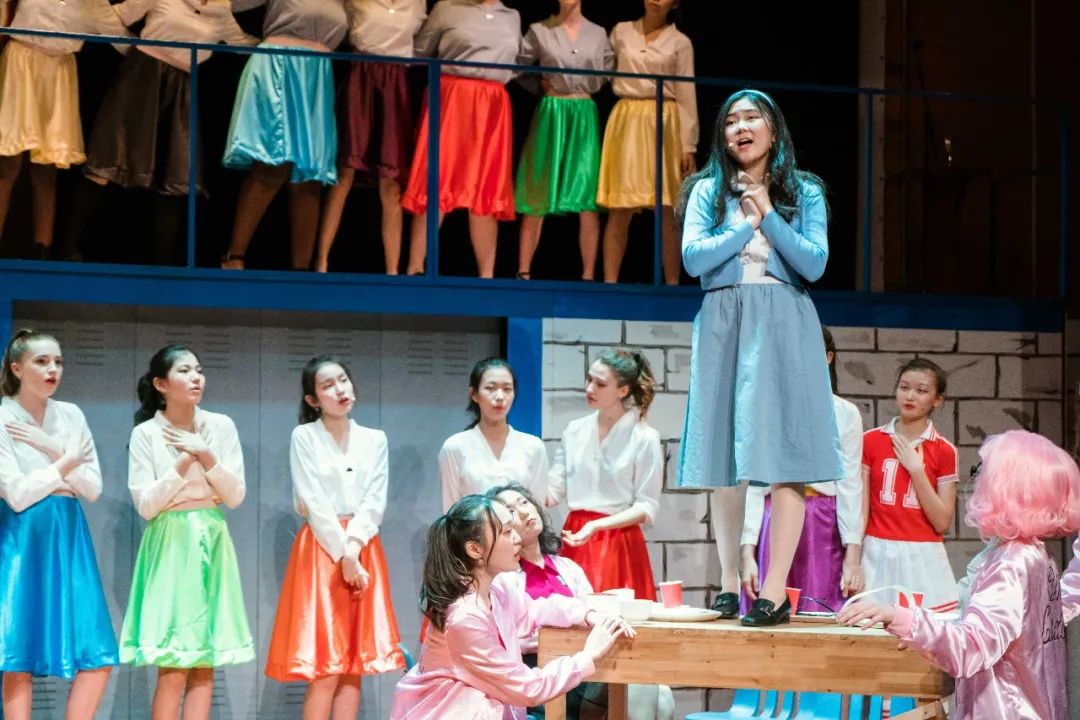
Our youngest cast member, Kai, described his experience, "Before I joined the show, I never knew how much effort we needed to put in to produce one musical. After the show, I felt proud of myself, and all the people involved in the show achieved the goal with great effort. The musical made me closer to my friends. It was so enjoyable to be involved in the show. I also want to join the musical next year. Thank you to every teacher who helped in the show."

Vivien, a pianist in the pit band, summed up what the production meant for everyone involved, "as we prepared for Grease over the past three months, there were a lot of special memories for me. I remember, after the last performance of Grease, I looked at the smiles of success from all the actors, band members and teachers. I felt proud but wished it could be longer as I knew we were going to really miss it once it was finished …"
Related Articles
_1683254650397.jpg?x-oss-process=image/interlace,1/resize,m_lfit,w_1200/quality,q_90/format,webp)

_1685947758563.jpg?x-oss-process=image/interlace,1/resize,m_lfit,w_1200/quality,q_90/format,webp)




 Channel
Channel 
 Linkedin
Linkedin  Weibo
Weibo  Facebook
Facebook  Ins
Ins 







